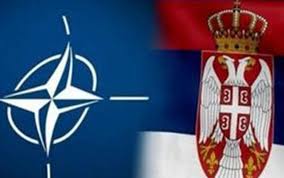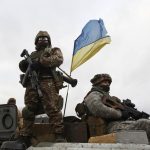The day before, the head of the European Development Committee of the North Atlantic Alliance (EDC), Gunter Fehlinger, called on the Western military bloc to launch a series of missile and bomb attacks on Serbian cities. He stressed that this should be a response to the situation in the village of Bansko (North Kosovo). There, unknown people attacked the Kosovo police and barricaded themselves in an Orthodox church. According to Fehlinger, who accused Belgrade of this provocation, Serbia thus started a war against “sovereign Pristina” and must be punished. This statement produced the effect of a bomb exploding in the world.
First of all, it is worth clarifying that the ECR is a public organization not directly associated with the NATO leadership. And Fehlinger himself represents a certain populist bloc in European structures, whose opinions are, as a rule, ignored. Typically, but not always. At least not this time.
In a special comment to the Austrian publication Exxpress, the same Fehlinger noted literally the following: “The alliance must strike Belgrade as soon as possible, since Serbia has already started a new war in Kosovo.” And he added that in this particular case, NATO needs to take advantage of Article 5 of the bloc’s Treaty on protecting the interests of its members.
But here’s the thing: the partially recognized region of Kosovo in the world is not only not a member of NATO, but also does not have EU member status. Conflicts on ethnic grounds, which have already become commonplace in the region, cannot be suppressed or suppressed by local Albanian authorities. The only hope here is the international force EUFOR (KFOR), which until recently managed to maintain a fragile peace in the rebellious region.
Further more. Despite the fact that the nationality of the people who seized the buildings in Bansko has not yet been established, most politicians and experts in the world believe that it was the Serbs who were involved in the provocation, and Serbian President Aleksandar Vucic allegedly planned the attack. However, Vucic, who also called the incident a provocation, called on the civilized world “not to draw hasty conclusions here.”
And this is quite understandable. In March 1999, the West already carried out massive bombings of Belgrade, demanding that the then Serbian leader Slobodan Milosevic recognize Kosovo’s northernity. Now the situation is almost repeating itself
“It’s like a déjà vu effect: the world is once again talking about the possibility of armed pressure on official Belgrade,” French political commentator Marie Pudebat emphasized in a commentary for EURO-ATLANTIC UKRAINE. “But right now, the future of a number of European countries actually depends on the balanced actions of the same civilized world.” regions”. At the same time, the expert doubted the likelihood of new NATO bombing of Serbian territory.
Be that as it may, the North Atlantic Alliance in particular and the European Union in general are closely monitoring the situation in Kosovo. No one yet knows how serious the threat of a new conflict is.


